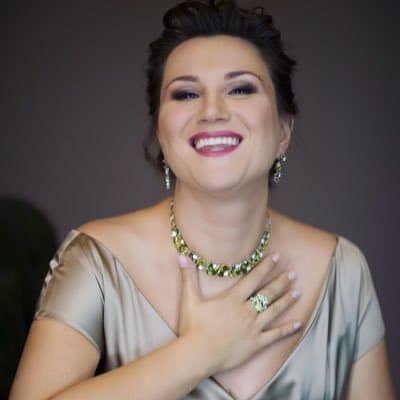Mahler’s friend gets a hearing after 100 years of silence
mainHe was the most trusted of Mahler’s conductor assistants, closer to the composer at first than the young Bruno Walter, Otto Klemperer and Alexander Zemlinsky.
What attracted Mahler to Oscar Fried was, aside from his personal devotion, his aspiration to be a great composer.
Fried went on to pursue a successful career as a conductor, making the first recording of Mahler’s second symphony in 1924 and conducting the Berlin Philharmonic in the second performance of Mahler’s ninth.
The first western conductor to work in Soviet Russia, he sought asylum there after Hitler came to power and died in Moscow, of uncertain causes, in 1941.
Fried’s greatest success as a composer came in 1903 with Das trunkene Lied (The Drunken Song) for chorus and orchestra, based on texts by Friedrich Nietzsche with which Mahler was closely familiar. After 1914, the work sank into oblivion.
It was revived earlier this year by a German youth orchestra and will be broadcast by Deutschland Radio on Wednesday at 8 pm. Details here.

Fried (standing left, in 1928) with Ravel at the piano





…and George Gershwin on the right?
Yes, indeed.
Please post any details you have of the provenance of this photo! Presumably in Paris?
This is a famous photo taken on a US tour of Ravel in the twenties, hence the presence of Gershwin. The little man with the ironic smile (‘pince sans rire’) at the piano, is Ravel, the genius of the group.
I understand the photo was taken in New York, during Ravel’s 1928 visit to the USA.
Fascinating story. Looking forward to hearing htis piece. Nowadays so much is being dug-out of music, side-lined by history’s falsification of the 20th century by modernist academia, who projected a time line from Wagner’s Tristan chord, over Mahler’s dissonances and Schoenberg’s atonal despair, to Stockhausen and Boulez, right into Xenakis’ ‘Metastasis’, representative of terrible acustical lethal disease:
http://www.youtube.com/watch?v=lLFyskDiOZM
Actually NOT taken in NY but in France and nobody seems to know about or recognize the equally famous singer Madeleine Grey……..
Not Madeleine Grey. Photo taken in France at a party for Ravel’s 53rd birthday. He had asked, as a birthday present, if Gershwin could play for him. From left to right: Oscar Fried, party hostess Eva Gauthier, Ravel, Tedesco (conductor of the San Carlos Orchestra), Ravel, Gershwin.
Eva Gauthier (1885 – 1958) was a Canadian-born mezzo with impeccable musical training in Europe. She appeared in the 1920 London premiere of Debussy’s “Pelléas et Melisande.” She championed modernist composers and in 1923 gave a recital at New York’s Aeolian Hall, a haven for classical music. She included four songs by 25-year-old Gershwin, which he accompanied at the piano. Critic Deems Taylor was impressed. The songs “stood up amazingly well, not only as entertainment but as music.” He praised their melodic interest and their “almost classically severe form.” In the audience was Paul Whiteman. The next time Gershwin would sit at the piano in the Aeolian Hall (1924), he and Whiteman would be making musical history at the premiere of “Rhapsody in Blue.”
Fred is so confident that the photo was taken in France not New York, but the Wikipedia article on Ravel comments that it shows a “Birthday party honoring Maurice Ravel in New York City, March 8, 1928. From left: Oskar Fried; Éva Gauthier; Ravel at piano; Manoah Leide-Tedesco; and George Gershwin.”
since when is wikipedia the source of reliability?????
Anyway I am not home will check my Madeleine Grey material this coming week-end ….I hate to stand corrected but I am not without fault but so far my bet is still on MG
Fried also taught Russian composer Reinhold Gliere conducting in Berlin.
Less well known about Fried is his activity during the First World War in Switzerland, where he met his old friend, the Viennese Salonnière Berta Zuckerkandl, whose sister was married to Paul Clemenceau, brother of French President George. Berta had been sent to meet her sister by the Austrian government to see what the possibilities were of Austria and France striking a separate peace deal that didn’t involve the Germans. Fried and Graf Harry Kessler were both friends of Zuckerkandl’s and regulars in her Viennese salon, where among other things, the Secessionists were founded and later, the Salzburg Festival. Berta was possibly the worst imaginable ‘spy’ and meeting both Oskar Fried and Kessler blabbed her mission. Both Fried and Kessler shopped her to the German authorities who intervened directly with Vienna. In any case, the Entente had long come to the view that one of the best weapons against the Germans was having Austria as allies. They were unwilling, unhappy at having been dragged into a conflict far greater than anticipated all in the interest of German expansionism, which was not part of Austria’s original war-time agenda. With such unwilling allies, the French, Americans and British thought it best to leave the Austrians and Germans bundled together in their unhappy alliance. Nevertheless, Fried and Kessler’s duplicity surprises, but then Berta, though very clever, was not smart.
Fried’s son Grigory became a well-known composer in the USSR.
Grigory Fried wrote an exceptional opera in Russia, ‘The Diary Of Anne Frank’. It languished unperformed, until it was premiered at Dom Muzyky in Moscow, by the Vremena Goda orchestra, conducted by Vladislav Bulakhov.
Fried had two German daughters, but no son, Grigori Fri(e)d is a different, but also important Fried…
And further information on Berta Zuckerkandl, the dedicatee of Ravel’s La Valse, (Ravel having stayed at ther home in Vienna) – and of course, it was at her dinner party where Alma met Gustav. . . .
And her sister in Paris who introduced Mahler to the Dreyfusards…
Illuminating comments by all, thanks. Regarding Gershwin’s trip to France: he asked Ravel to be his teacher but Maurice, upon hearing some of George’s work, replied “there is nothing that I can teach you.” George asked the same of Stravinsky, whose first question was “how much money do you make with your music?” Hearing George’s reply, Igor refused to speak to him any further! [quotes paraphrased]
This story has a happier ending than that. Stravinsky didn’t refuse to speak to Gershwin any further. He was probably more obsessed with making money from composing than Gershwin was. When Gershwin said his annual earnings were around 100,000 dollars, Stravinsky’s response was: “Then maybe I should be taking lessons from you.”
As for Ravel, when Gershwin asked him for lessons his response was: “Why be a second-rate Ravel when you are a first-rate Gershwin?”
Nice article on Fried, however he did not record “the first performance of Mahler’s second symphony” but instead was the first to record it. Mahler’s #2 was performed multiple times during his lifetime.
correct.